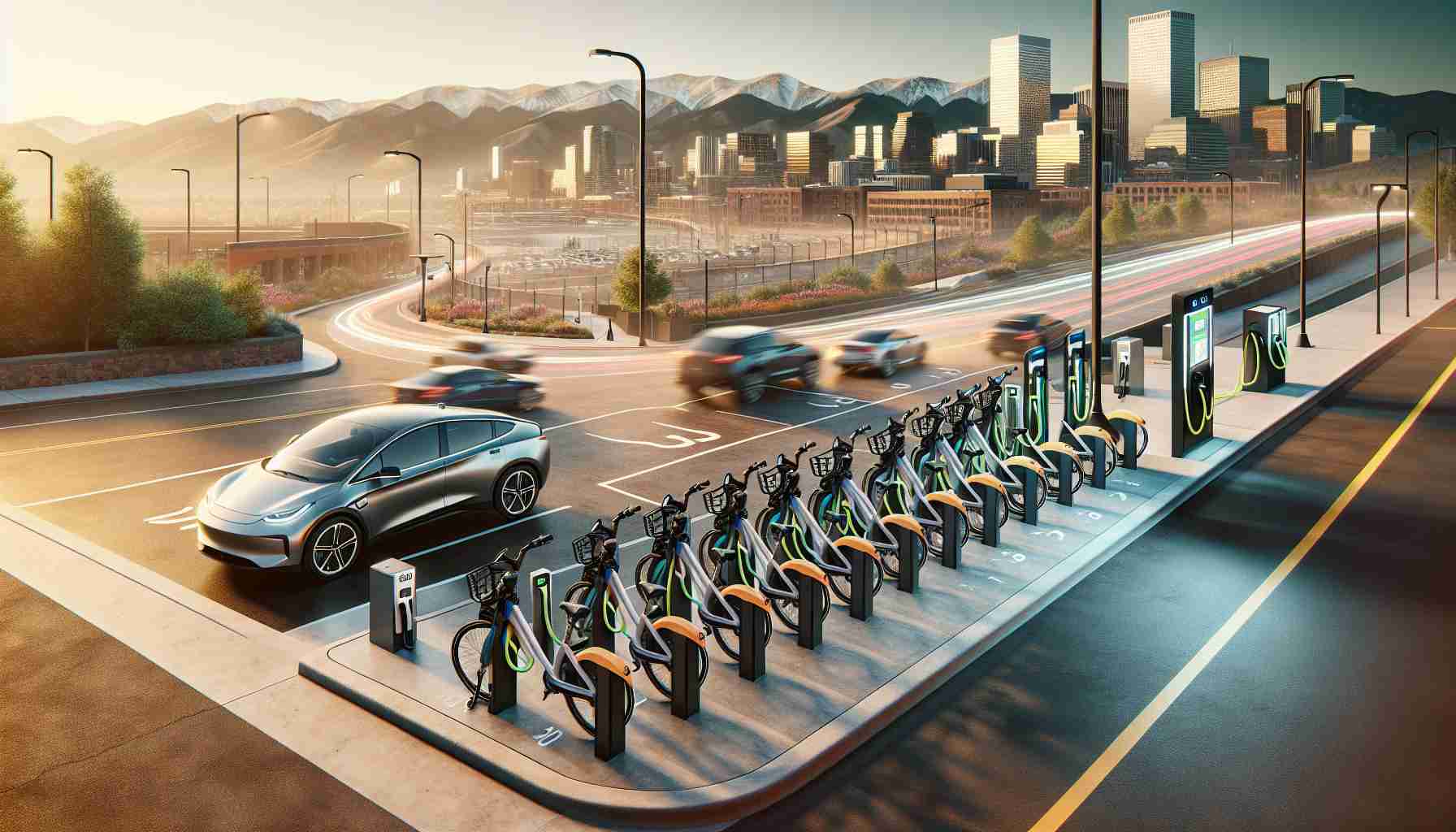Denver is embracing the future of transportation by incentivizing the use of electric bikes (e-bikes) and electric vehicle (EV) charging stations. The City of Denver has allocated approximately $5 million for the Denver Mobility Incentive Program, aimed at making deliveries, transport, and customer travel more sustainable.
The program, which builds upon previous grants and pilots, seeks to reduce cost barriers and encourage businesses to adopt greener practices. Denver flower shop Flowers on the Vine, for example, received a free e-bike under a pilot program with the Denver Streets Partnership. This e-bike has become an essential tool for the shop’s daily local deliveries and material transportation between locations.
The convenience and eco-friendliness of the e-bike have made it a valuable asset for Flowers on the Vine. Owner Tarah Anthony explains that the e-bike can easily accommodate multiple arrangements, making deliveries efficient and hassle-free. Additionally, with the e-bike’s aid, the shop was able to sell their vehicle and now partners with third-party services like Uber for longer distances.
The success of the pilot program has prompted city leaders to expand their efforts. The newly launched Denver Mobility Incentive Program offers grants of up to $100,000 per applicant to facilitate greener transportation solutions. Funding will be allocated for e-bikes, EV charging stations, and similar projects, with applications being accepted on a rolling basis.
Mike Salisbury, transportation energy lead at Denver’s Office of Climate Action, Resiliency, and Sustainability, emphasizes the significance of these mobility efforts in achieving the city’s environmental objectives. Transportation is the second-largest source of greenhouse gas emissions in Denver, making the shift towards electric bikes a crucial step in reducing pollution. Salisbury affirms that an e-bike produces only 1% of the emissions of a typical vehicle, further highlighting the positive impact of each e-bike trip on transportation emissions.
Denver’s focus begins with supporting local nonprofits, recognizing their vital role in promoting sustainable transportation practices. As more organizations embrace e-bikes, the streets of Denver will see a surge in two-wheeled eco-friendly transportation. Flowers on the Vine and other businesses are excited to share the roads and bike lanes with an increasing number of e-bikes in the coming years.
The Denver Mobility Incentive Program is not only fostering green transportation but also adding a sense of joy and fitness to the workday. As Tarah Anthony proclaims, “Going places without struggle, and it’s a good workout at the same point. I mean, like, who doesn’t want to have a lot of cardio and get paid for it?” With the program’s continued growth, Denver is on the path to a greener and more vibrant transportation landscape.
In addition to supporting e-bikes, the Denver Mobility Incentive Program also focuses on the promotion of electric vehicles (EVs) by funding the installation of EV charging stations. This initiative aims to increase the availability and accessibility of charging infrastructure, encouraging more people to switch to electric vehicles and reduce their carbon footprint. By embracing both e-bikes and EVs, Denver is taking a comprehensive approach to sustainable transportation.
The market forecast for the e-bike industry is promising. According to a report by Market Research Future, the global e-bike market is expected to grow at a CAGR of 6.02% during the forecast period from 2019 to 2025. Factors such as increasing environmental awareness, rising fuel costs, and improvements in battery technology are driving the demand for e-bikes worldwide. The market is also witnessing technological advancements and innovations, leading to the development of more efficient and user-friendly e-bike models.
One of the main issues related to the e-bike industry is the lack of regulations and infrastructure to support this mode of transportation. As e-bikes gain popularity, there is a need for clear guidelines on their usage, including speed limits, bike lane access, and safety requirements. Additionally, cities need to invest in the development of cycling infrastructure, such as bike lanes and parking facilities, to ensure a safe and convenient riding experience for e-bike users.
To learn more about e-bikes and sustainable transportation, visit the website of the Denver Mobility Incentive Program at denvergov.org. This website provides detailed information about the program, including eligibility criteria, application process, and FAQs. It also offers resources and guides for businesses and individuals interested in adopting e-bikes or installing EV charging stations.
If you’re interested in exploring the global e-bike market trends and forecasts, you can visit Market Research Future’s website at marketresearchfuture.com. They provide comprehensive market research reports and analysis on various industries, including the e-bike market.
Overall, Denver’s initiative to incentivize e-bikes and EVs through the Denver Mobility Incentive Program demonstrates its commitment to sustainable transportation and reducing greenhouse gas emissions. By addressing industry challenges, investing in infrastructure, and encouraging businesses to adopt greener practices, Denver is setting an example for other cities to follow in building a more sustainable future.







